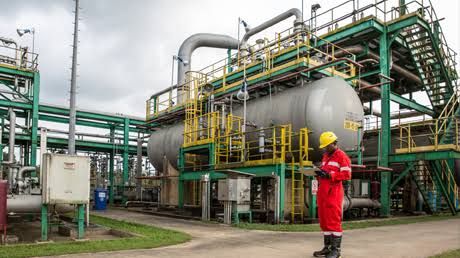Nigeria’s quest for energy independence is billed for spotlights at the 2nd Nigeria Refining Summit, hosted by the Crude Oil Refinery Owners Association of Nigeria (CORAN) in Lagos.
The event, a statement showed, would unite government officials, industry leaders, investors, and global energy experts to shape the future of Nigeria’s refining sector, a critical driver of energy security in Africa.
“Despite being a top crude oil producer, Nigeria spends over $10 billion annually importing petrol and diesel, draining resources and hindering economic growth. The Summit aims to address this by highlighting Nigeria’s growing refining capacity and tackling key challenges, particularly sustainable crude supply,” the statement read.
READ ALSO:
‘Why I Did It,’ Publisher Speaks On GAC Frame Presentation To Lagos Assembly Speaker
Stakeholders Offer Tips On How To Restore Investors’ Confidence in Nigeria’s Oil Sector
N8.41tn Oil Theft Drains Economy, Fuels Investor Doubts
5 Reasons Real Estate Still Safest Investment in Nigeria, By Dennis Isong
‘Not Again,’ Nigeria Suspends 4% FOB Levy On Imported Goods
CSO Asks Tinubu To Halt Allocations To Zamfara Over Gov Lawal’s Alleged Bandit Ties
The Dangote Refinery, Africa’s largest, now operates at over 70% capacity, while modular refineries like Aradel, Waltersmith, and OPAC showcase innovative smaller-scale solutions. Upcoming projects, including BUA’s 200,000 barrels-per-day Akwa Ibom refinery and the rehabilitation of Port Harcourt and Warri refineries, could push Nigeria’s refining capacity above 1 million barrels per day by 2027, potentially ending fuel import reliance.
“Refining is a shared mission for Nigeria’s energy future,” said Engr. Momoh Oyarekhua, CORAN Chairman. “By uniting mega-refineries, modular plants, and state facilities, we can achieve energy independence and unlock economic potential.”
According to CORAN, the refining sector holds vast potential for Nigeria’s economy. Early industry estimates suggest it could generate hundreds of thousands of direct and indirect jobs, stimulate broad-based industrial activity, and add several percentage points to annual non-oil GDP growth. With sustained investment and policy support, Nigeria could also position itself as West Africa’s leading fuel supplier in a market valued at over $20 billion.
The Summit will feature a strategic dialogue to address crude supply challenges, bringing together policymakers, regulators, upstream producers, financiers, and refinery operators. Discussions will focus on securing reliable crude at competitive prices, offering fiscal incentives like tax relief and credit access, fostering public-private partnerships, and aligning with global environmental standards.
Drawing lessons from global success stories like India’s Reliance Jamnagar refinery and Indonesia’s refining expansion, the Summit will tailor strategies to Nigeria’s unique needs, aiming to cement its role as Africa’s refining hub.
Naijaonpoint

